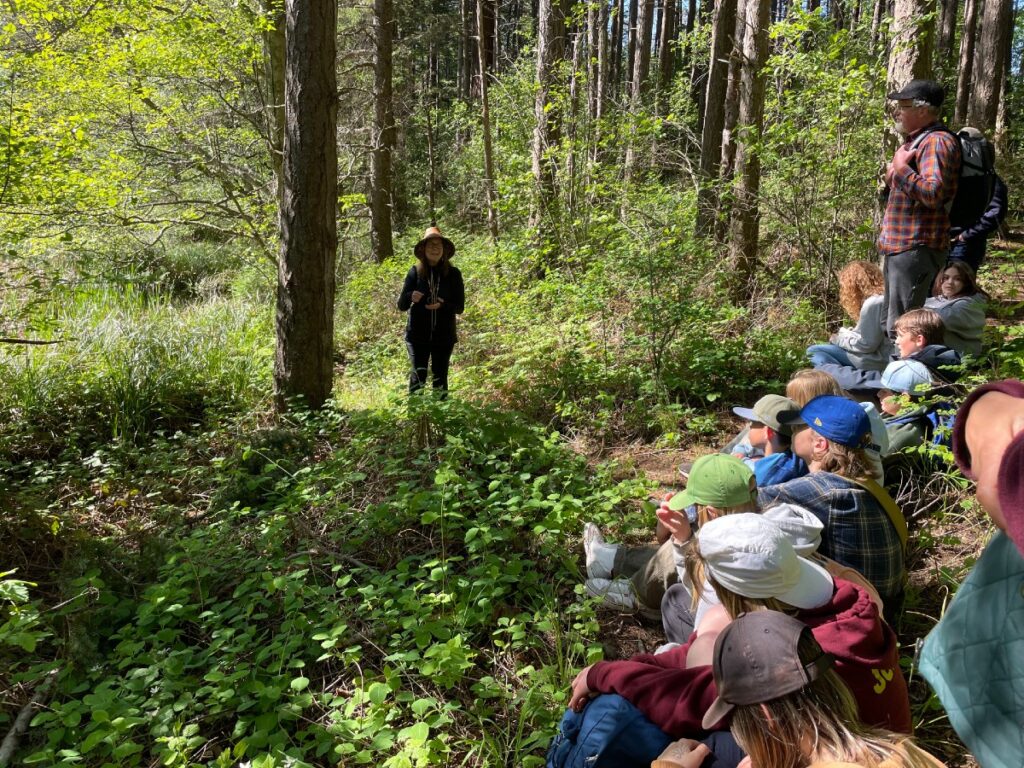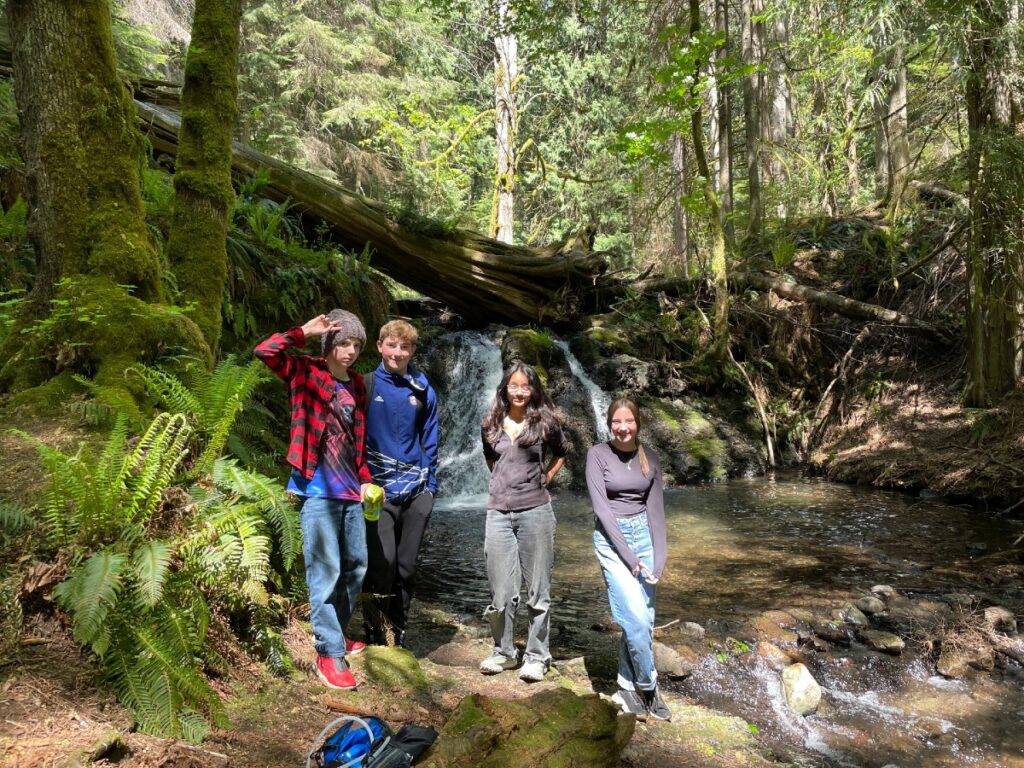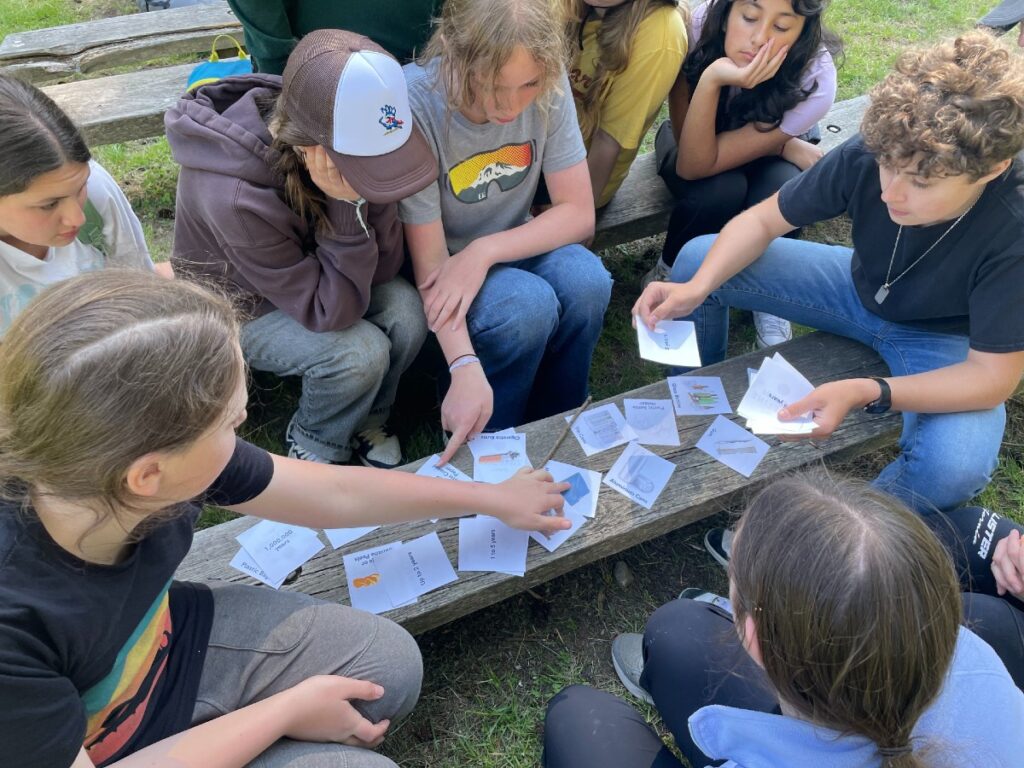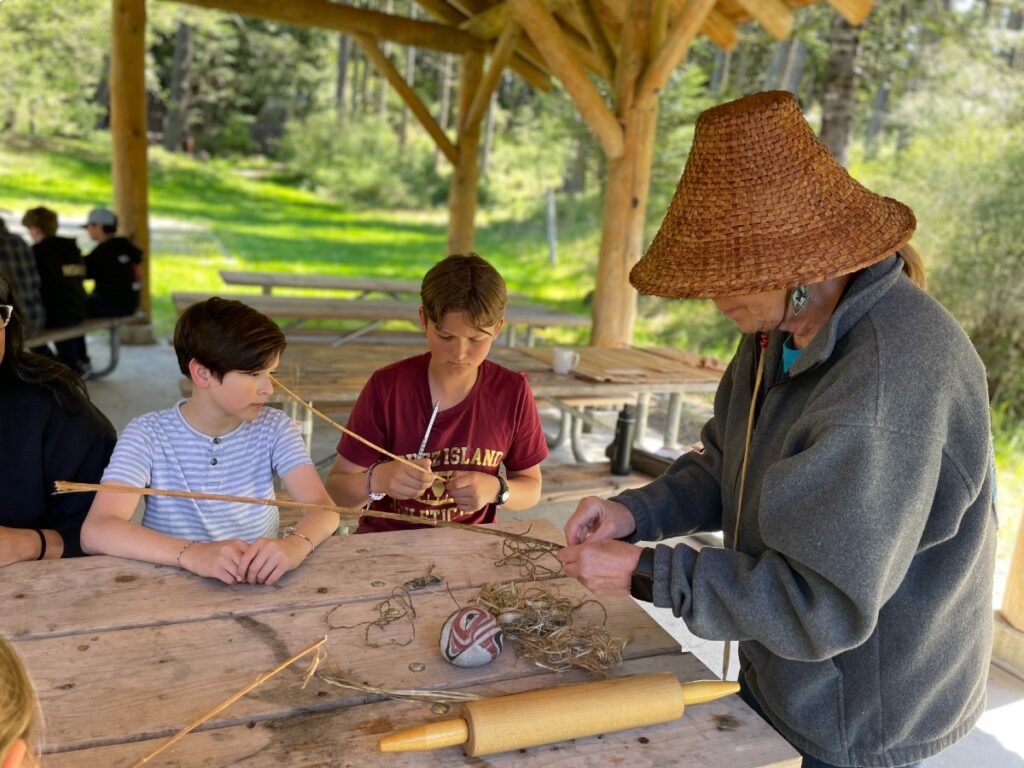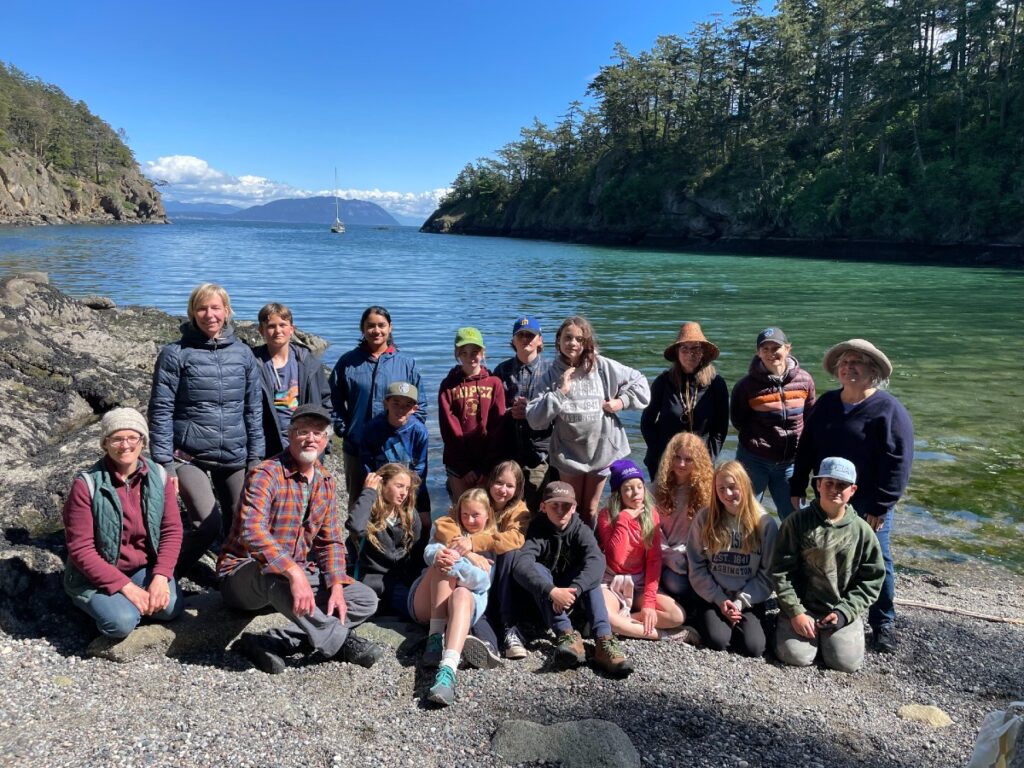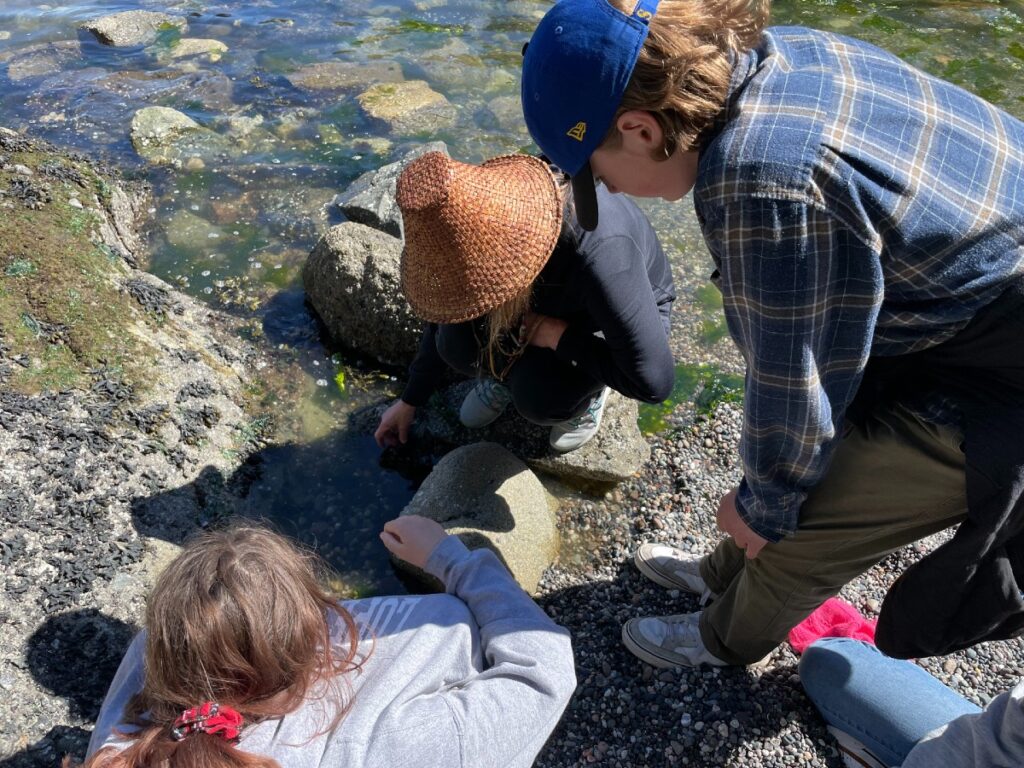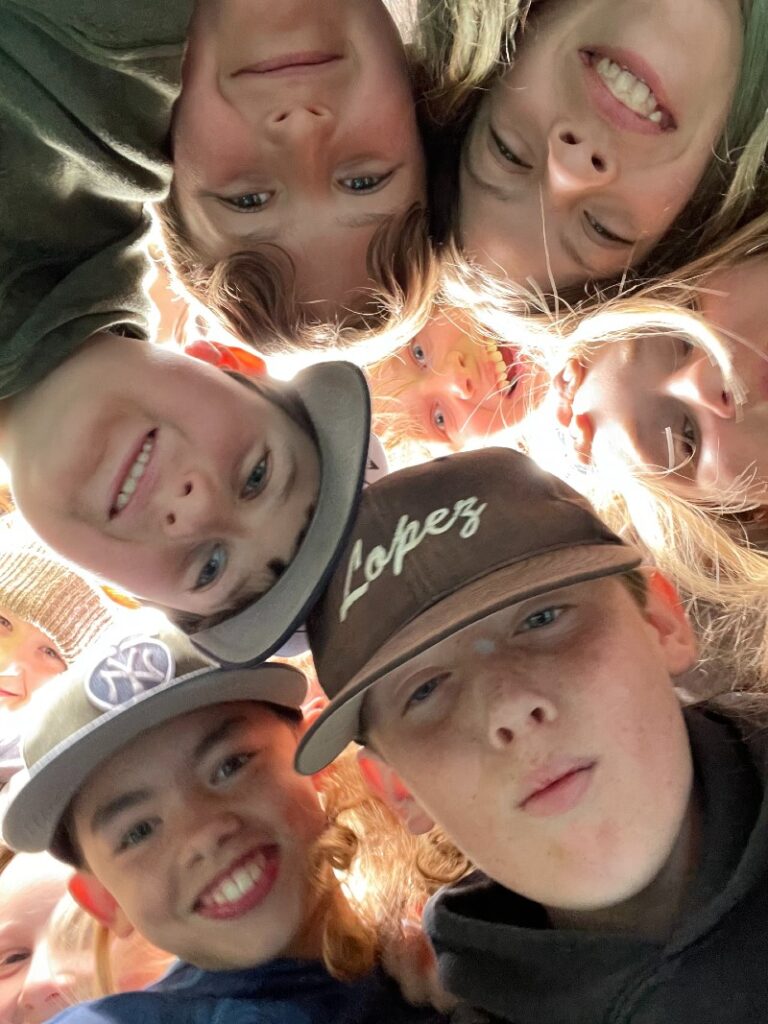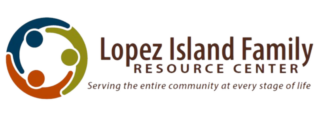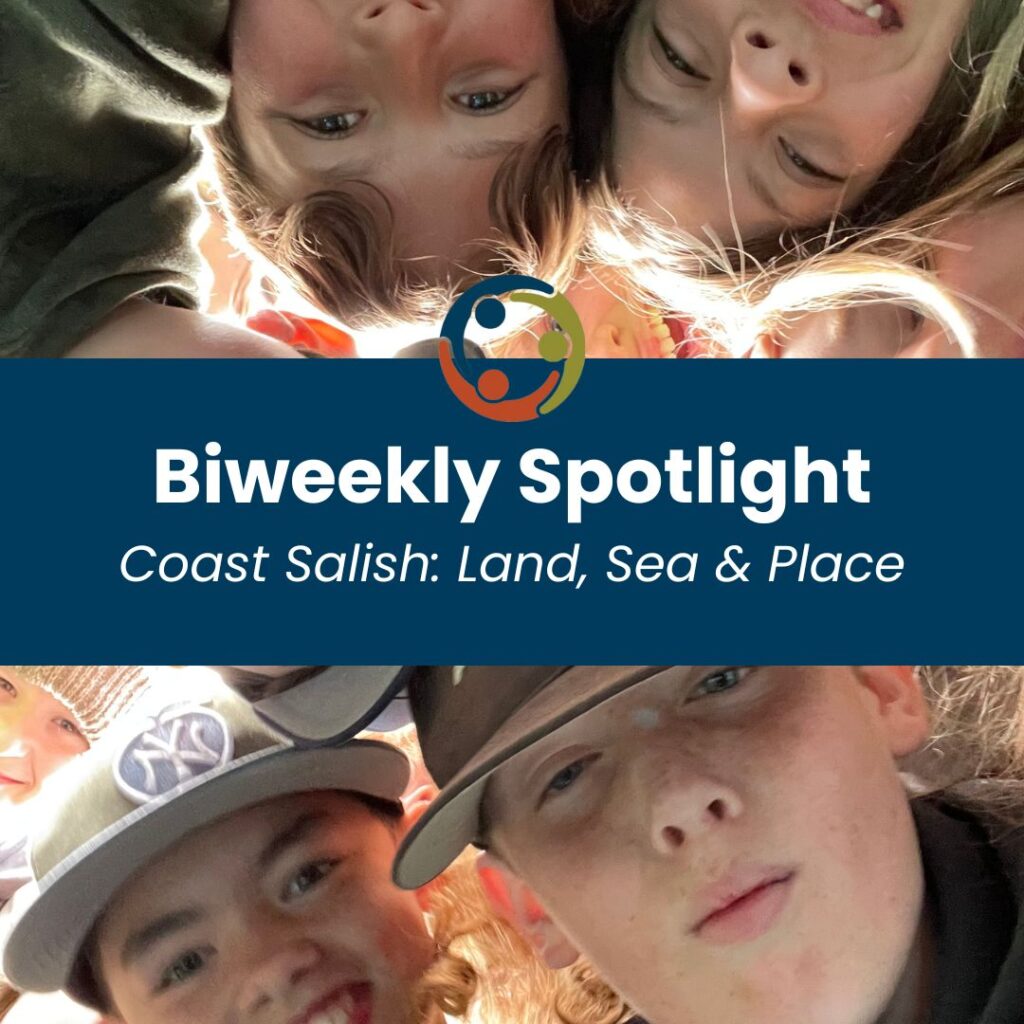Standing on the banks of the outer San Juan Islands, the late spring breeze whispers stories of time immemorial. Coast Salish: Land, Sea & Place is a multiyear project of LIFRC made possible by a grant from Office of the Superintendent for Public Instruction (OSPI), administered by WA State Recreation and Conservation Office (RCO).
We are honored to have the project designed, developed, and facilitated by Leslie Eastwood (Samish Nation) and Chiyokten Wagner (Saanich Nation). We are so grateful to Denise Crowe, Samish Nation Department of Education, for leading place-based learning throughout the project and a coalition of Coast Salish and Hawaiian tribal elders who so generously shared knowledge, culture, and teachings with Lopez youth grades 6-9. Without their support and expertise, this project would not be possible.
